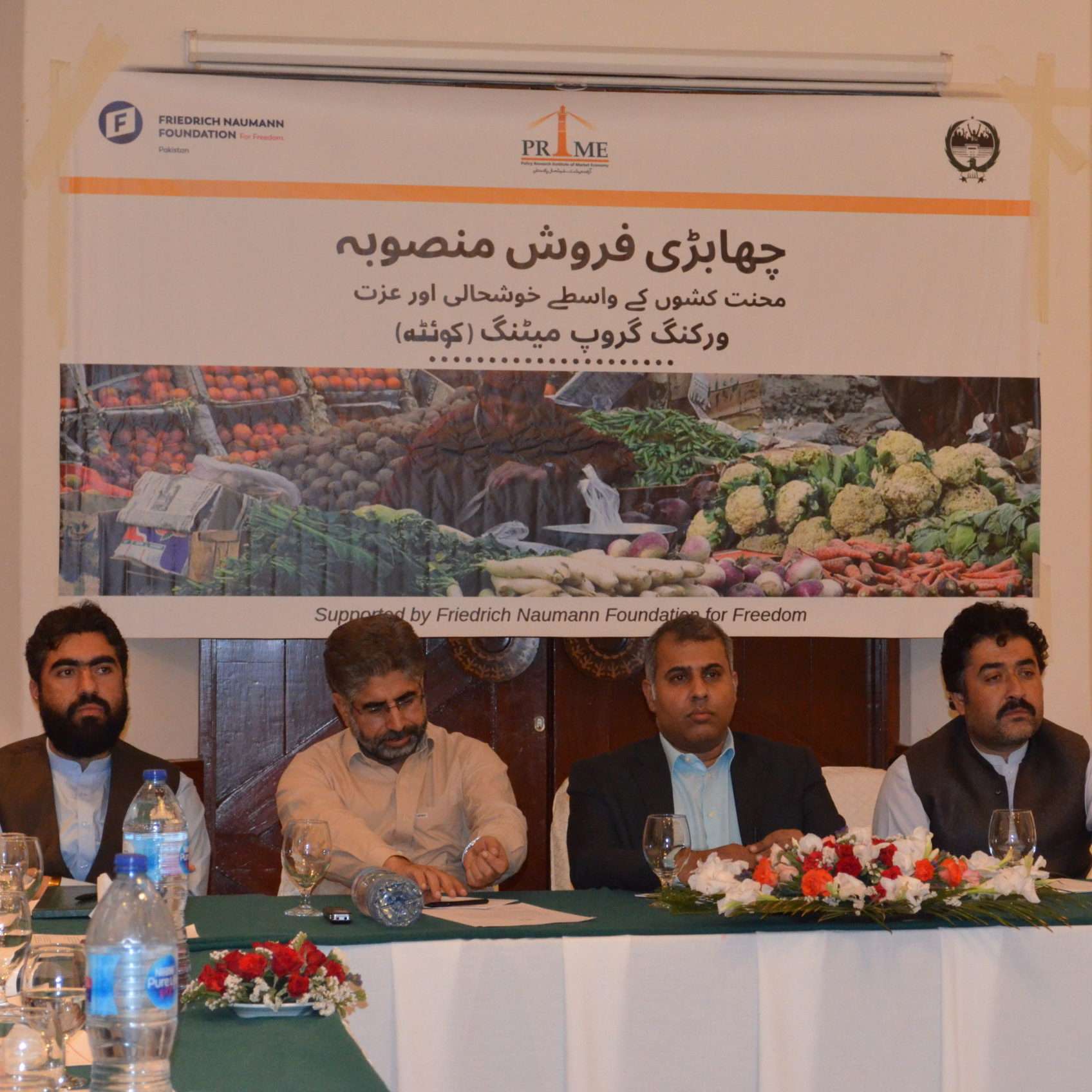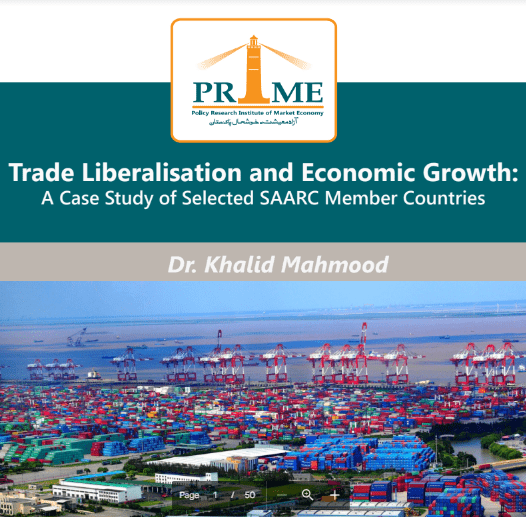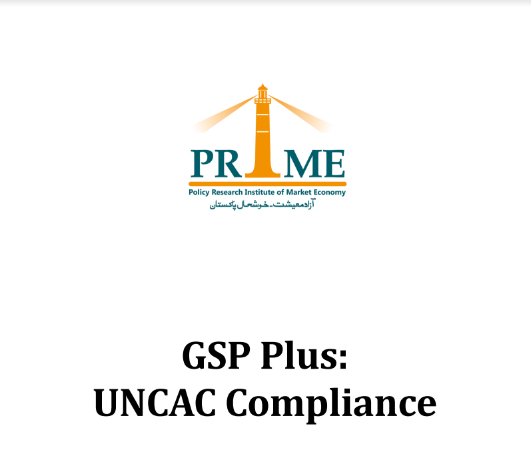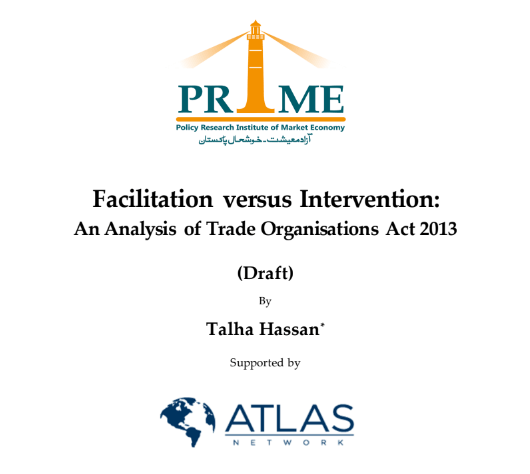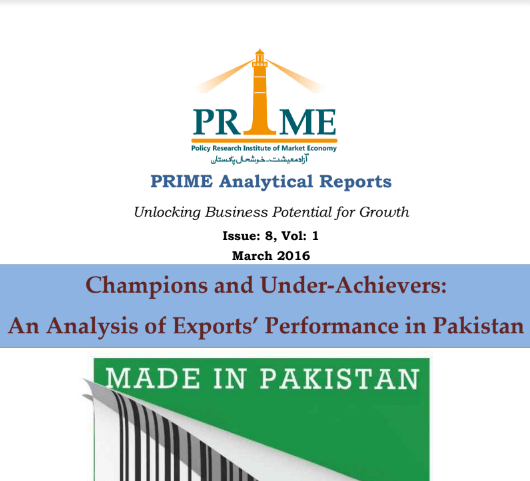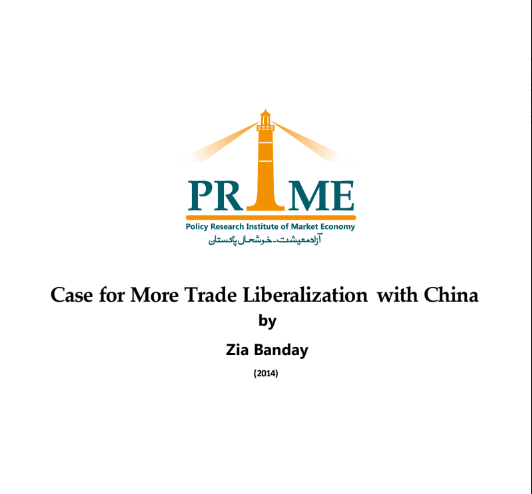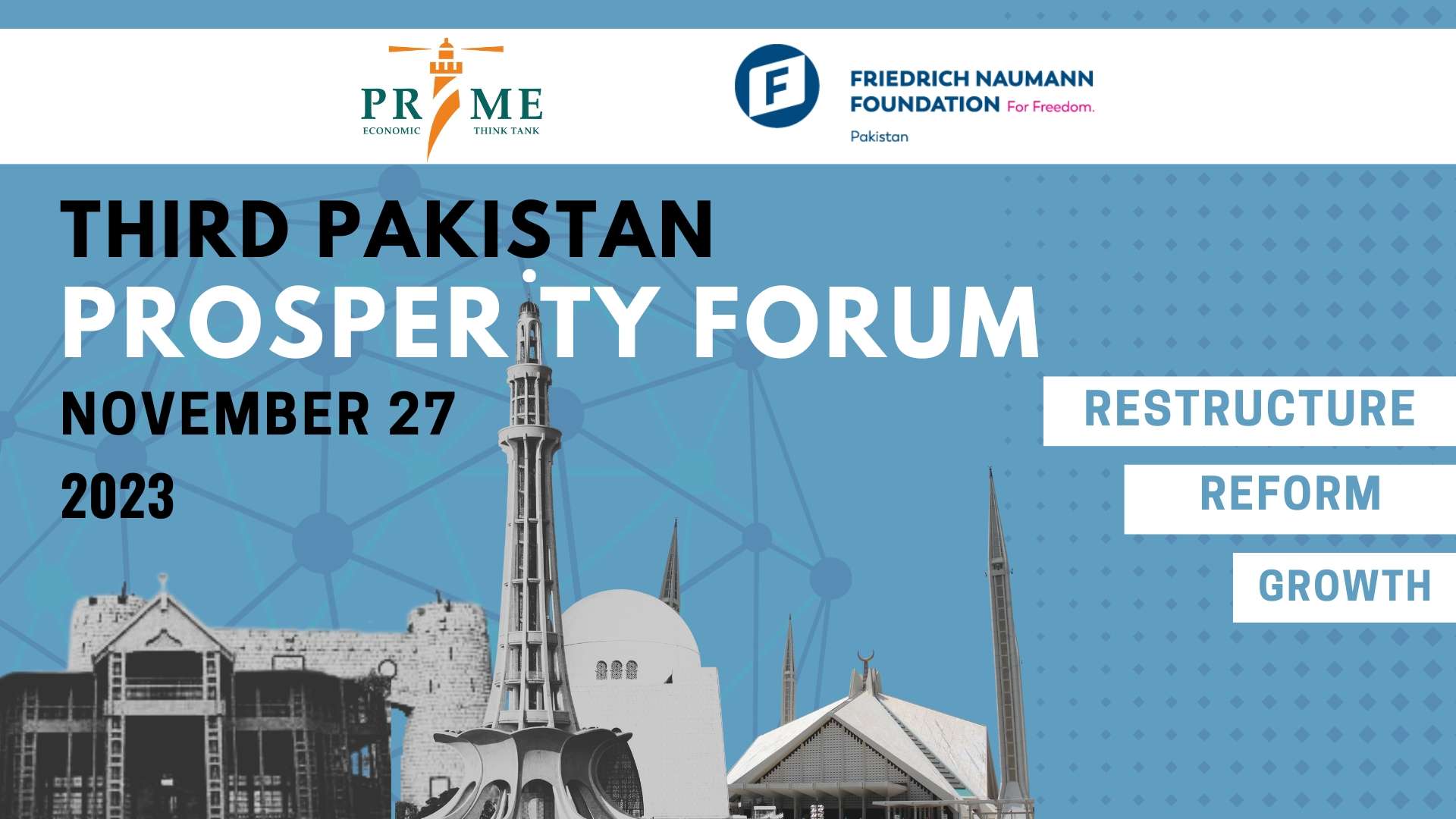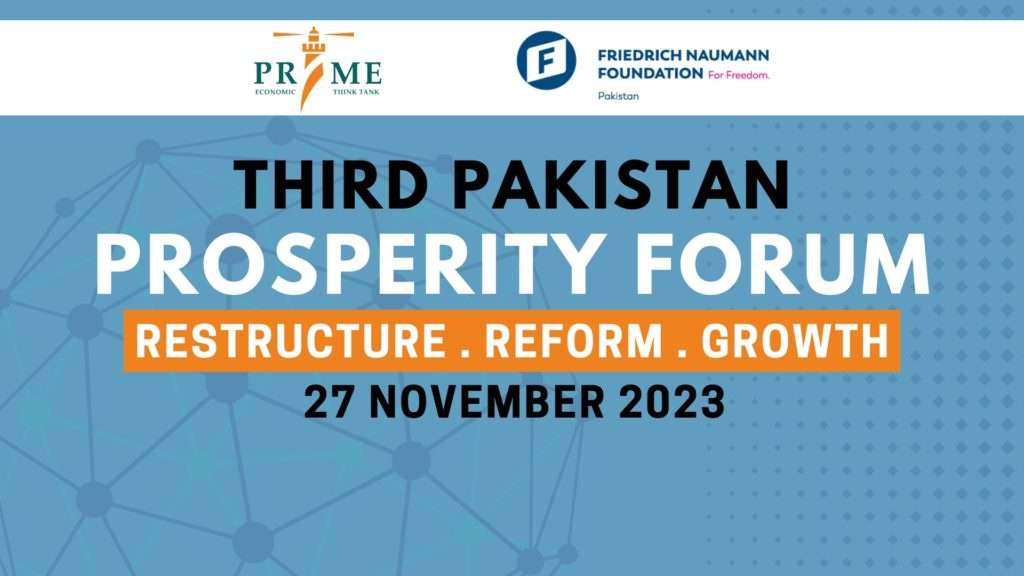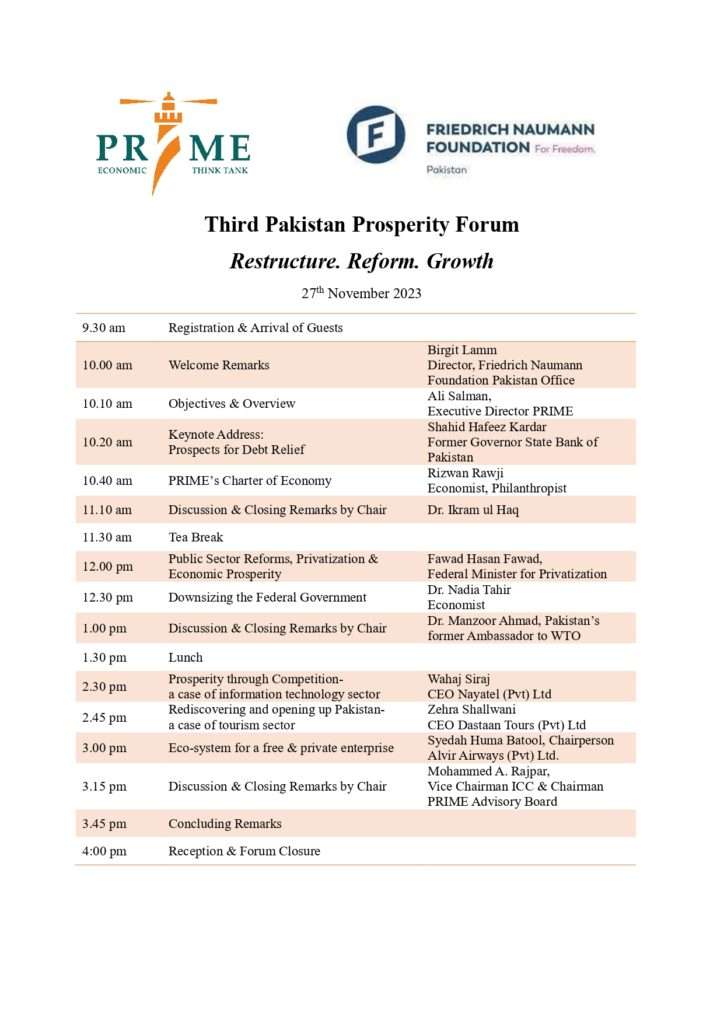PRIME Institute, held its 4th Street Vendor Assembly, at Baldia Ground, Quetta. The assembly was arranged in collaboration with the National Youth Assembly. It was attended by a large number of street vendors, operating in various neighborhoods of Quetta City. Senator Naseeb-ullah Bazai was the chief guest at the occasion.

Muhammad Ali, Chief Metropolitan Officer and Rahim Agha, President Anjuman e Tajiran Quetta were also present.
Zia Banday, Joint Executive Director, PRIME elaborated on the background and rationale of this assembly. He informed the audience that the street vendors around the country are suffering from inadequate legal protection, which makes make them susceptible to uprooting by municipalities and law enforcement agencies.
The government efforts in providing physical facilities for alleviating suffering of the poor are vital but protection of vending rights will enhance the productivity and earning capacity of this low income of the society.
Mr. Ahmed Bashir, prominent lawyer, mentioned that the street vendors in Pakistan are affectees due to unawareness of their rights and state apathy towards them.
Laws pertaining to street vending needs improvement. Efforts will be made to engage street vendor representative, municipality and civil society to prepare a new street vendor bill for covering vending rights in the cities.

Hanan Ali Abbasi, President National Youth Assembly, addressed the audience about the dichotomy of haves and have nots in the society.
He pointed out towards vast income gulf prevalent under current economic dispensation. In his opinion, the situation is unsustainable and real change is only possible from the bottom up approach.
Muhammad Ali , Chief Metropolitan Officer, inform the participants about the efforts undertaken by the municipality to resolve the issue. He asked the street vendor community to pay attention on educating their children. He told them that education is an optimal path for their social mobility.
Mr. Raheem, president Arjanman e Tajran, did talk about the problems faced by the street vendors in the city. He defined them as a vital part of the local city economy and their contribution cannot be ignored.
Senator Naseeb-ullah, in his concluding remarks, appreciated the efforts of PRIME in highlighting a critical issue for the sustenance of one of the most deprived sections of the society.
He told the street vendor, that as a political representative, he is well aware of their difficult operating environment. He will make his all efforts to take the voice of street vendors at the provincial and federal level. He will support the PRIME initiative for a new street vendor bill. At the end of the assembly, different street vendor vent out about their problems, which they are facing at the ends of city administration. Callous state attitude is depriving them of their livelihood and pushing them in the poverty trap.

Zia Banday announced the formation of a working group comprising of an elected representative of street vendors, government officials and civil society to work on the development of street vendor bill.


